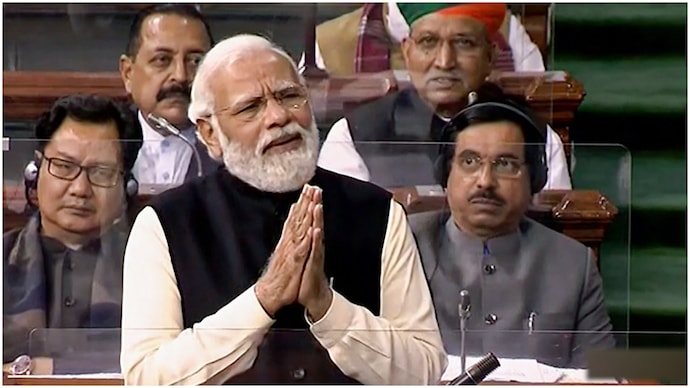Prime Minister Modi’s recent reading of Jawaharlal Nehru’s letter, in which Nehru expressed reservations about the concept of reservations, has stirred significant debate and discussion. This unexpected move by Modi, who belongs to the Bharatiya Janata Party (BJP), known for its advocacy of affirmative action and reservation policies, has sparked intrigue and raised questions about the interpretation of Nehru’s stance on this contentious issue.
Nehru, as India’s first Prime Minister and a prominent figure in the Indian National Congress, played a pivotal role in shaping the nation’s post-independence policies, including those related to social justice and affirmative action. However, his views on reservations have been a subject of scrutiny and interpretation over the years.

SOURCE:- NEWS18
In the letter cited by Prime Minister Modi, Nehru expressed concerns about the potential drawbacks of reservation policies, cautioning against their overuse and emphasizing the importance of meritocracy. Modi’s decision to publicly highlight Nehru’s reservations about reservations has been viewed through various lenses.
SOURCE:- THE INDIAN EXPRESS
Some see it as a strategic move to challenge the dominant narrative surrounding reservations and to assert the BJP’s commitment to merit-based governance. By invoking Nehru’s words, Modi aims to underscore the nuanced and evolving nature of the reservation debate, transcending partisan divides and ideological boundaries.
Others interpret Modi’s gesture as a subtle critique of the Congress party’s approach to reservations, highlighting internal contradictions within the party’s historical stance on this issue. By emphasizing Nehru’s reservations, Modi seeks to challenge the Congress party’s monopoly over the legacy of social justice and to portray the BJP as a more credible custodian of inclusive governance.
However, there are concerns that Modi’s selective reading of Nehru’s letter may oversimplify the complex realities of reservation policies and their impact on marginalized communities. Critics argue that while Nehru may have expressed reservations about certain aspects of reservations, his broader vision of social justice and inclusive development encompassed affirmative action as a means of addressing historical injustices and structural inequalities.
Moreover, the timing and context of Modi’s reading of Nehru’s letter raise questions about the political motivations behind this gesture. Coming amidst heightened political polarization and social tensions, the interpretation of Nehru’s views on reservations risks being instrumentalized for partisan gain rather than fostering genuine dialogue and understanding.
prime Minister Modi’s reading of Jawaharlal Nehru’s letter, in which Nehru expressed reservations about reservations, has reignited debates about affirmative action, social justice, and the legacy of India’s founding leaders. While this gesture may have strategic implications for political narratives and alliances, its broader implications for policy-making and social cohesion warrant careful consideration and critical scrutiny.
Share your views in the comments

